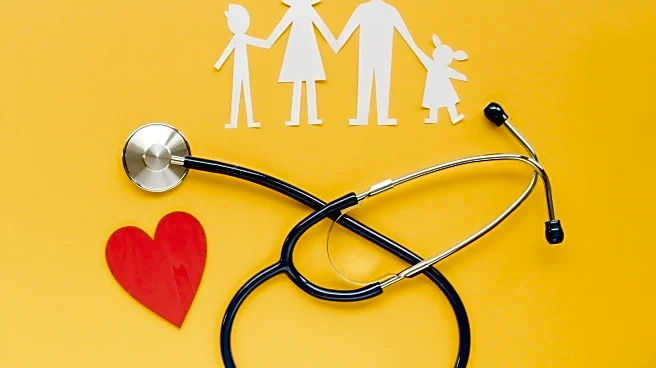What's Happening?
Lin and Eddie Bruchez have been seeking answers regarding their stillborn son, Paul Edmond Bruchez, who was born in August 1975. The couple, from Gateacre, Liverpool, were initially told to 'go home and forget about it' after the birth, receiving no support. Their daughter, Joanne Bruchez-Corbett, has been actively trying to uncover what happened to her brother for the past 20 years. The family is seeking recognition and closure, hoping to find a place to lay flowers and remember him. The Department of Health and Social Care has acknowledged the situation as 'appalling' and is working to prevent similar occurrences in the future. Health Secretary Wes Streeting has expressed willingness to meet with affected families.
Why It's Important?
The Bruchez family's experience highlights significant gaps in the support provided to families dealing with stillbirths, particularly in the past. Their story underscores the need for compassionate care and proper procedures in maternity services. The Department of Health's response indicates a commitment to improving these services, which could lead to better support systems for grieving families. This case also raises awareness about the emotional and psychological impact of stillbirths, emphasizing the importance of addressing these issues in public health policy.
What's Next?
The Department of Health and Social Care is working to transform maternity services to ensure high-quality, compassionate care for all parents. Health Secretary Wes Streeting's willingness to meet with affected families suggests potential policy discussions or initiatives aimed at addressing past grievances and preventing future occurrences. The Bruchez family may continue their quest for answers, potentially influencing broader changes in how stillbirths are handled by healthcare providers.
Beyond the Headlines
The Bruchez family's story sheds light on the long-term emotional toll of unresolved grief and the importance of closure. It also highlights the broader issue of how historical healthcare practices can leave lasting scars on families. This case may prompt ethical discussions about the responsibilities of healthcare systems in providing adequate support and recognition to families affected by stillbirths.











